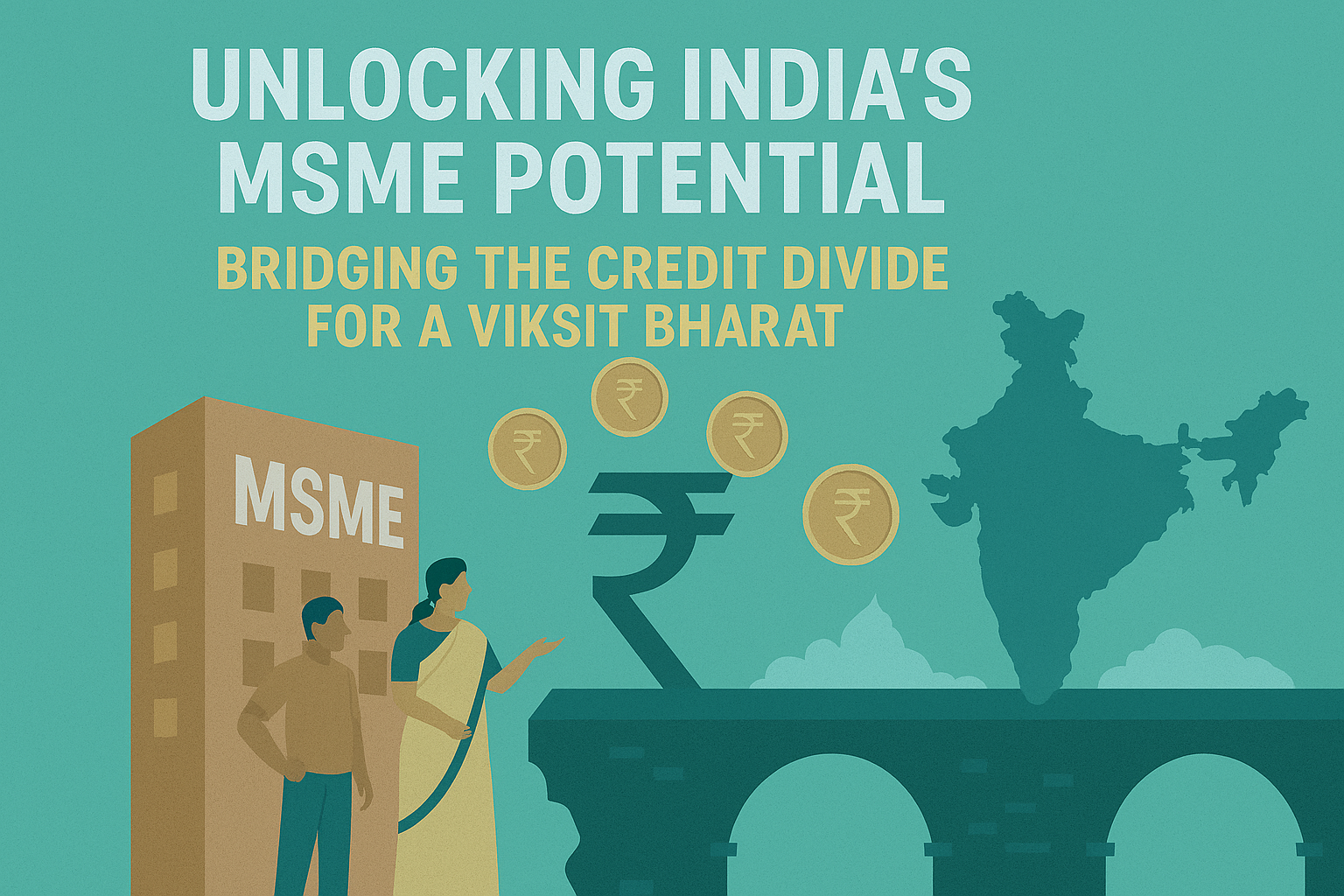Unlocking India’s MSME Potential: Bridging the Credit Divide for a Viksit Bharat
India’s path to economic prosperity is closely intertwined with the success of its Micro, Small, and Medium Enterprises (MSMEs). These dynamic businesses are not just key economic drivers; they form the backbone of the nation’s industrial output, generate jobs, and fuel innovation. Accounting for 45% of industrial output, over 40% of exports, and one-third of India’s GDP, MSMEs are central to the government’s vision of achieving a ‘Viksit Bharat’ by 2047. However, despite their importance, a significant roadblock remains: the lack of access to adequate, timely, and affordable formal credit.
The credit gap facing MSMEs is enormous, with an estimated ₹30 lakh crore shortfall in credit demand. This gap stifles the ability of MSMEs to invest, innovate, expand, and contribute to national growth. The crux of the issue lies in traditional lending models that are ill-suited to the unique characteristics of MSMEs. In particular, micro-enterprises (which make up 80% of the MSME sector) face the most acute challenges. Many MSMEs operate without comprehensive financial records, limiting the ability of banks to assess their creditworthiness. Furthermore, the lack of tangible collateral and bureaucratic hurdles make it even more difficult for MSMEs to access loans in a timely manner.

The problem is compounded for specific groups, such as women-led MSMEs (facing a 35% credit gap) and service-sector enterprises (27% gap). The absence of formal financial inclusion leaves many of these businesses reliant on expensive and unreliable informal lenders.
In response, the Indian government has launched several initiatives to bridge this gap and facilitate financial inclusion. Formalization of MSMEs through platforms like Udyam Registration has played a key role, increasing credibility and reducing information asymmetry. The revamped Credit Guarantee Fund Trust for Micro and Small Enterprises (CGTMSE) has raised the guarantee ceiling to ₹10 crore and reduced the fee to 0.37%, offering collateral-free loans and mitigating the risks for lenders. Other initiatives such as the Pradhan Mantri Mudra Yojana (PMMY) provide collateral-free micro-loans up to ₹20 lakh, and the Reserve Bank of India’s Priority Sector Lending (PSL) ensures that loans up to ₹10 lakh for micro-enterprises are provided with zero collateral.
However, the true revolution lies in the growth of digital innovation in the MSME lending ecosystem. Digital Public Infrastructure (DPI), which integrates Udyam identity with GSTN data and the Account Aggregator framework, is transforming access to credit. Lenders can now assess MSME viability based on real-time cash flow data, rather than relying solely on historical collateral or credit scores. Fintech companies, leveraging alternative data such as digital payments, are able to build accurate credit profiles and offer low-cost, low-paperwork loans tailored to the needs of New-to-Credit (NTC) borrowers. As a result, MSME loan delinquency rates have fallen to a five-year low of 1.8%, boosting lender confidence.
While significant progress has been made, challenges remain. A slight uptick in delinquency rates for loans under ₹10 lakh indicates that micro-enterprises still face significant hurdles. Bridging this gap requires continued collaboration between MSMEs, lenders, and policymakers. MSMEs must prioritize formalization, maintain accurate financial records, and embrace digital payments to improve their credit profiles. Lenders must adopt data-driven underwriting models and support financial literacy. Policymakers must simplify regulations, deepen DPI integration, and focus on vulnerable segments such as women-led businesses.
To truly unlock the potential of India’s 6.2 crore MSMEs, it’s crucial to integrate financial services with business development support. By creating a seamless ecosystem that combines affordable credit with capacity-building initiatives, India can unleash the full power of its MSMEs, paving the way for inclusive, sustainable growth.
Empowering MSMEs is not just an economic imperative; it is the key to realizing the vision of a ‘Viksit Bharat.’
AUTHORS:
Sandeep Mishra: Founder & CEO, Catalytic Corps
Sakya Mukherjee: Consultant, Catalytic Corps


